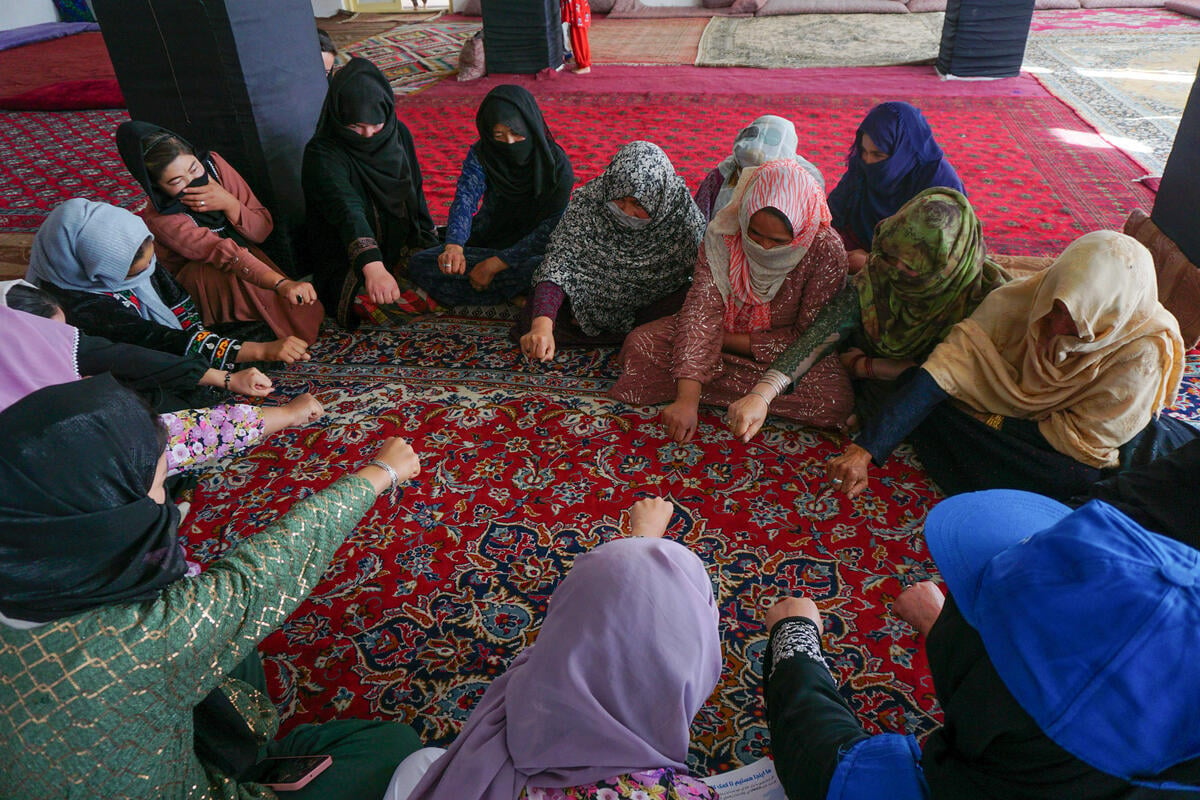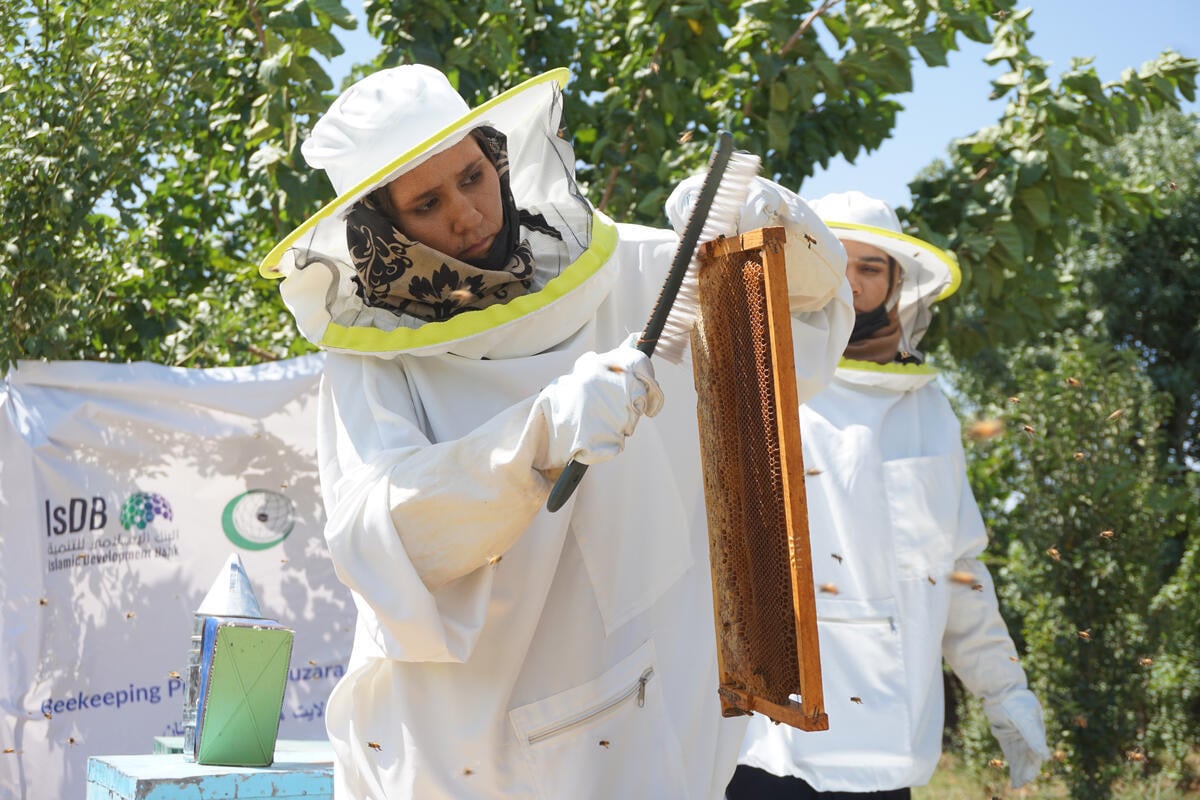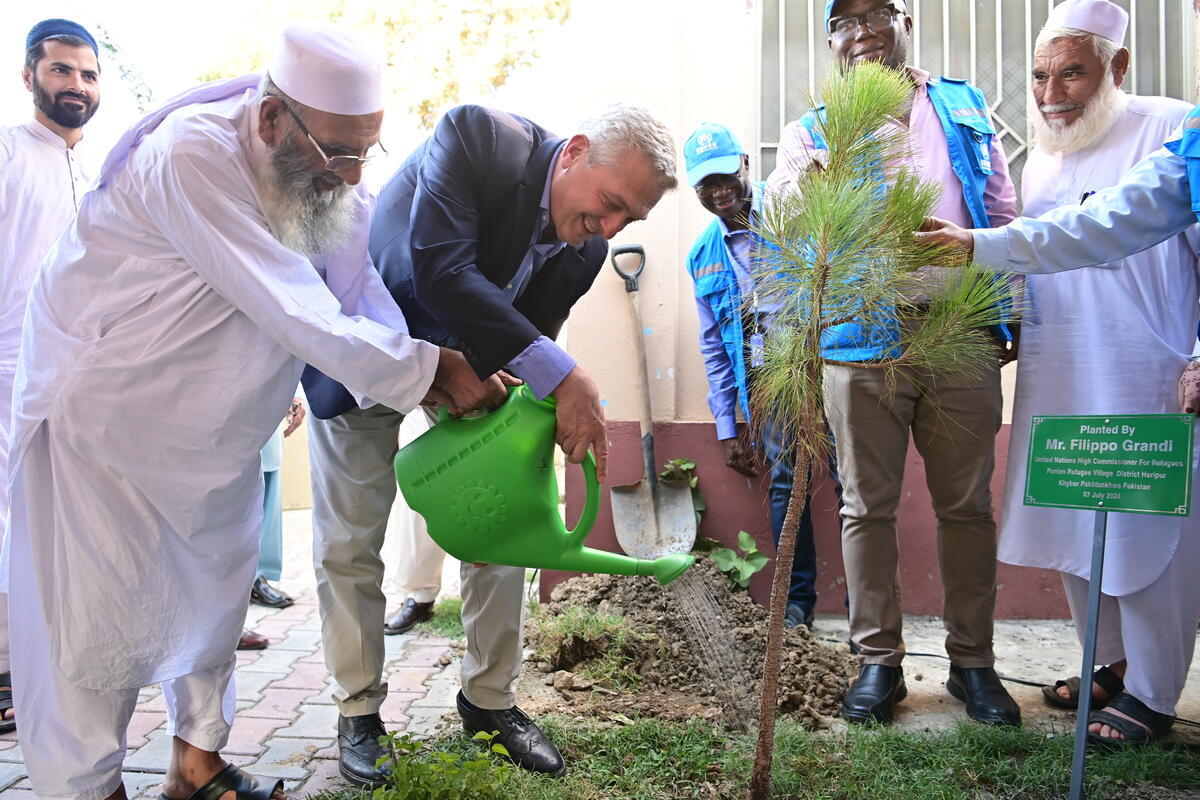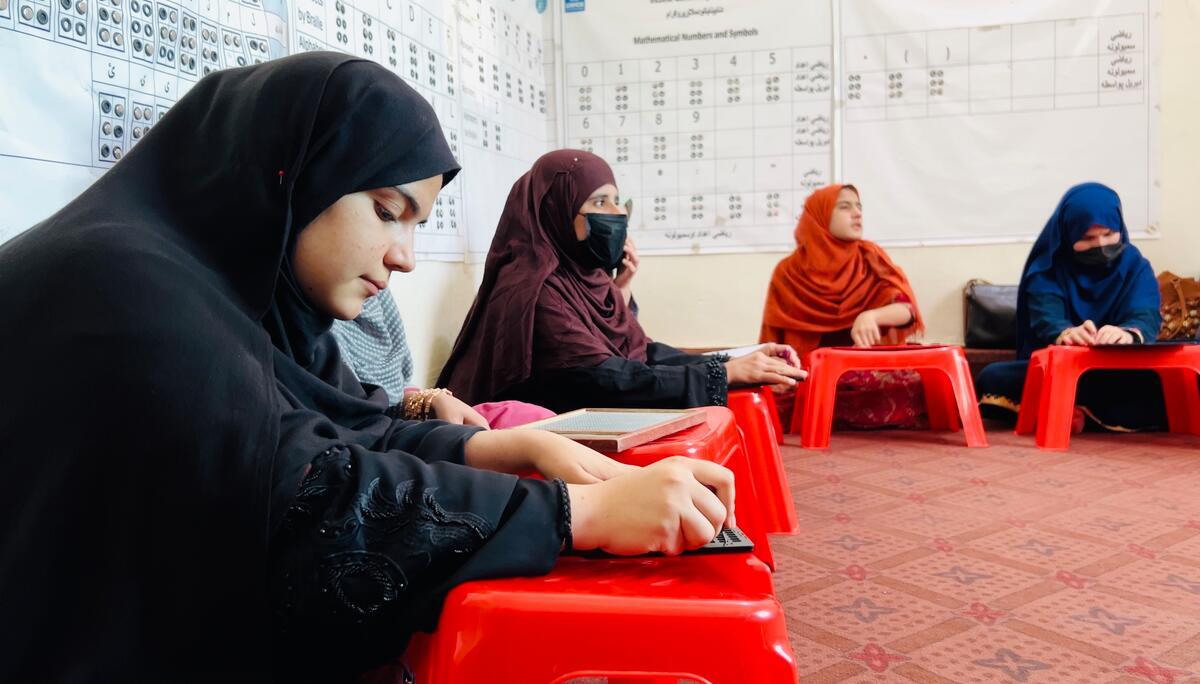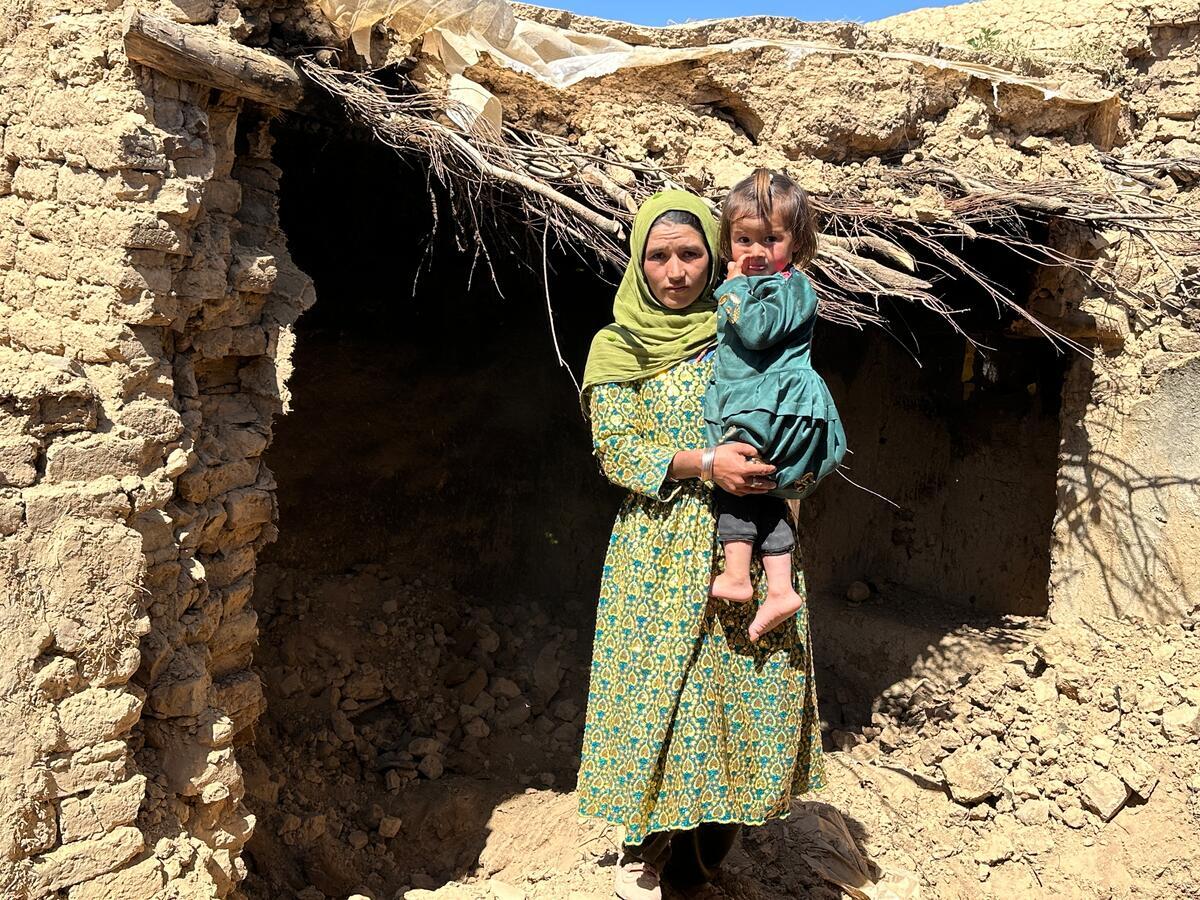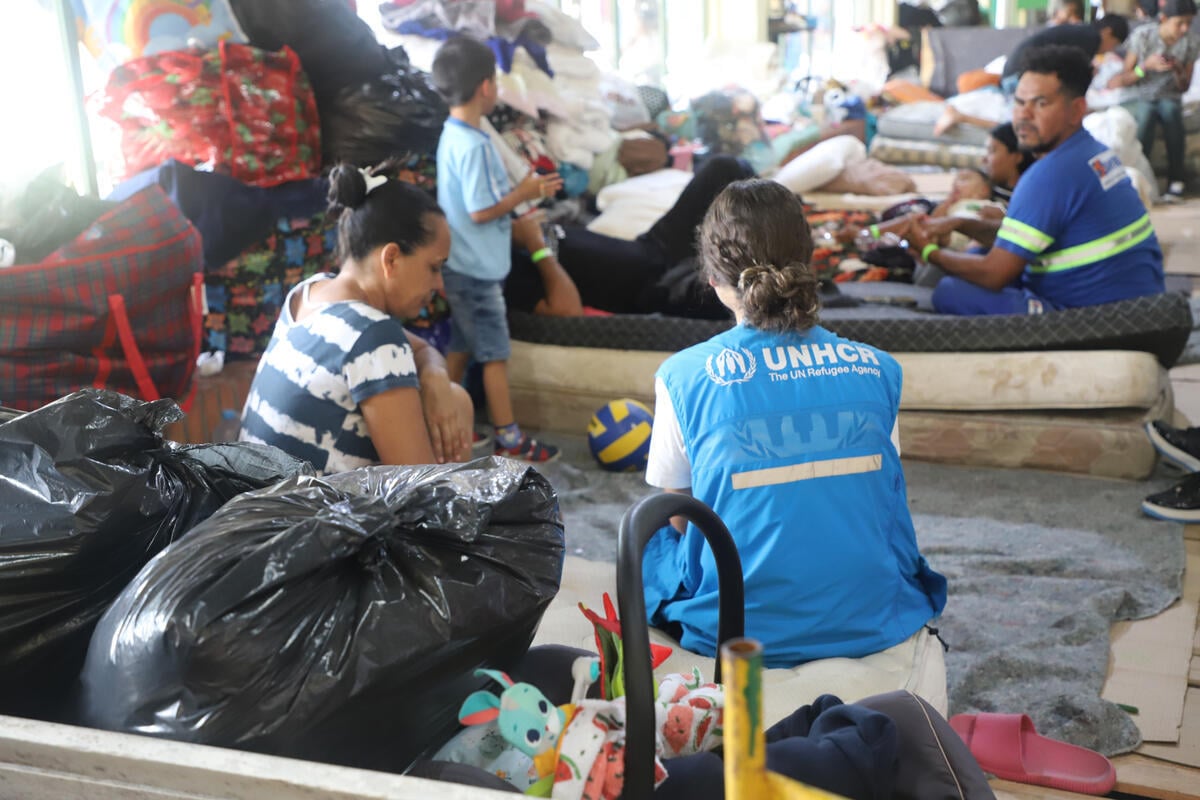Afghanistan emergency
Afghanistan emergency
UNHCR in Iran is gearing up for a possible large-scale, organised return of Afghan refugees in the country. UNHCR officials in Tehran are this morning meeting with Iranian authorities to discuss the development of a repatriation plan.
Security allowing, organised, large-scale movements are likely to begin in early spring. UNHCR hopes to use the winter months to work with a re-activated tripartite committee comprising UNHCR, Iranian authorities and Afghans to prepare a comprehensive repatriation plan. There are currently 2.3 million Afghan refugees in Iran, according to government figures.
Spontaneous returns through Iran's main border crossing to the north-east continue on a daily basis. Many of the returnees continue to be young men who had fled to Iran during Taliban rule to escape forced conscription. Already by mid-morning today, 18 buses carrying 800 returnees had arrived in Dogharoun. Returnees are mainly Tajiks, Uzbeks, and Hazaras. They say they are encouraged to return home because of the positive developments in Herat as well as in areas of north-west Afghanistan which they have heard about on radio and television.
Meanwhile, Iranian authorities have this morning given the green light for the departure of an aid convoy from the north-eastern Iranian town of Mashad to Herat, western Afghanistan. The convoy was set to leave Mashad at noon today and is expected to reach the town of Taybad, 15 km from Iran's border, before nightfall. The 15-truck convoy is then scheduled to proceed to Herat, some 150 km from the border, tomorrow morning. The departure of the convoy was delayed on Saturday as Iranian authorities sought security guarantees for the convoy from Northern Alliance forces.
The relief convoy is the first to be organised jointly by the Iranian Red Crescent and UNHCR since the withdrawal of aid agencies from Afghanistan in September. UNHCR staff in Mashad will escort the trucks up to the Iranian border where they will be met by UNHCR local staff from UNHCR's recently re-opened office in Herat. Supplies in the convoy include 2,000 plastic tarpaulins and 10,000 blankets from UNHCR for more than 12,000 people in the displaced persons camp in Herat. The camp has an estimated 200,000 displaced Afghans.
The Afghan border re-opened this morning to commercial traffic. Nearly 300 trucks that had been stuck at the border have started moving toward the town of Islam Qala, forming long queues across the border.
In southern Pakistan, meanwhile, the transfer of Afghans from the Killi Faizo temporary staging site on the border with Afghanistan to Roghani camp, some 16 km inland, was temporarily interrupted on Monday when local men dismantled 70 tents that had been pitched for use by the refugees. Several local armed men entered part of the new Roghani refugee camp and dismantled the tents, apparently in protest against the settlement of the refugees on their tribal land. However, following the prompt intervention of the local authorities, the problem was resolved, and we plan to move more Afghans from the border to the camp today.
On Monday, 251 Afghans were transferred to Roghani, bringing to 4,307 the total number of people at the camp. Another 539 individuals were registered at Killi Faizo on Monday, while 28 families who came too late in the day were provided with temporary accommodation pending registration today. There has been very little commercial traffic at Chaman, a normally busy border crossing, in the last two days. The crossing is the main route from southern Pakistan to the Taliban-controlled city of Kandahar. Only 10 trucks carrying wheat flour were seen entering Afghanistan yesterday at Chaman.
In Pakistan's Northwest Frontier Province, UNHCR moved 370 people from the Jalozai camp to the new Kotkai site this morning, bringing to some 750 the number of Afghans transferred since the operation began yesterday.

